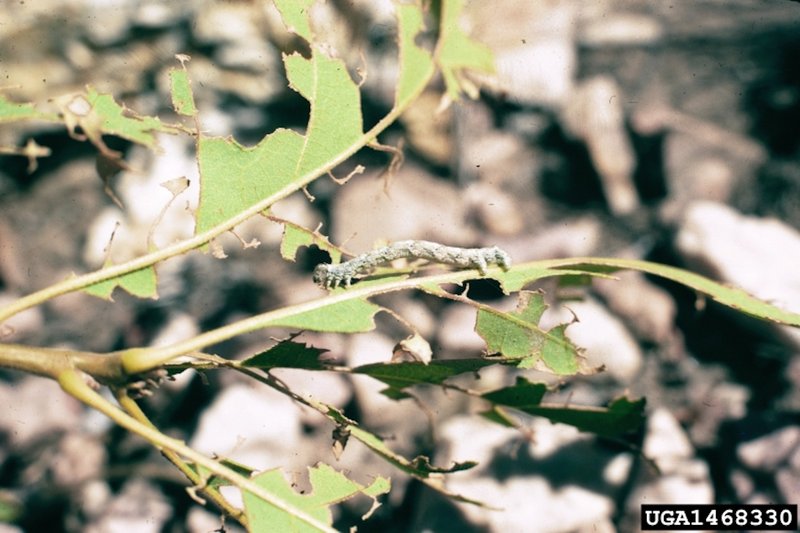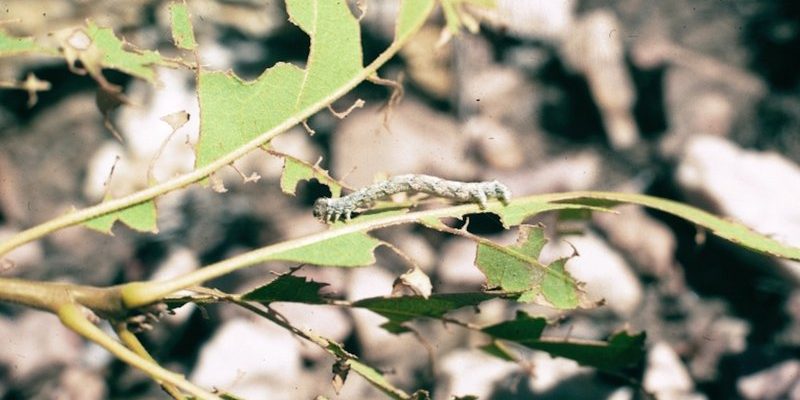
It’s a common concern among gardeners. After all, we put so much love and care into nurturing our plants, and the last thing we want is for pests to wreak havoc on our hard work. So, let’s dive deeper into the world of inchworms and see whether they’re truly harmful to your garden or just a part of nature doing its thing.
What Are Inchworms?
To understand if inchworms are harmful to garden plants, we first need to know what they really are. Inchworms are caterpillars from various moth species, particularly those in the Geometridae family. They typically have a slender body and can be green, brown, or even speckled.
These little critters have a unique way of moving by looping their bodies, which is how they got their name. When they’re not inching along leaves, you might find them munching on your garden favorites. Their diet primarily consists of leaves, which raises a red flag for gardeners. So, how much damage can they really do?
Do Inchworms Damage Plants?
Here’s the thing: inchworms can cause damage, but it really depends on their population size and the type of plants they’re eating. If you have just a few inchworms, they might nibble on a few leaves here and there without causing much harm. However, if they’re in high numbers, they can strip plants of their foliage, affecting their growth and health.
Inchworms tend to favor tender young plants and leaves—like those of tomatoes, beans, and various flowers. For instance, a small infestation can lead to defoliation, which means your plants won’t be able to photosynthesize as efficiently. This can stunt their growth, and no one wants that!
Signs of Infestation
So how do you know if you have a pesky inchworm problem? Keep an eye out for:
- Missing Leaves: If you notice leaves have holes or are completely gone, inchworms might be the culprits.
- Webbing: Some species create silk webs, especially around their feeding areas.
- Visible Inchworms: Look for these little guys on your plants, especially during the evening when they’re most active.
If you start seeing these signs, it’s time to take action.
How to Control Inchworms
If you find yourself facing a growing army of inchworms, don’t panic! There are several ways to manage them without using harsh chemicals that could harm your plants or beneficial insects.
1. **Handpicking:** If the infestation is small, simply pick them off your plants. Wear gloves, and drop them into a bucket of soapy water to dispose of them.
2. **Natural Predators:** Encourage birds and other natural predators like parasitic wasps into your garden. They’ll help keep the inchworm population in check.
3. **Neem Oil:** This natural pesticide disrupts the life cycle of inchworms and other pests. Spray it on affected plants according to the package instructions.
4. **Diatomaceous Earth:** This powdery substance can be sprinkled around your garden. It’s harmless to humans and pets but will deter soft-bodied insects like inchworms.
If you implement these methods early, you can keep inchworms from becoming a bigger problem.
Are Inchworms Beneficial at All?
You might be thinking, “Are these little guys all bad?” Surprisingly, inchworms can play a role in the ecosystem too. They serve as food for birds, frogs, and other garden wildlife. Furthermore, inchworms can help with the natural cycle of life in your garden.
When they turn into moths, they can be a food source for other creatures, thus contributing to the food web. Plus, they help break down decaying leaves and organic matter, enriching the soil when they munch on dead plant material. So, while they can be a nuisance, they also have their place in nature.
Preventing Inchworm Problems
To avoid an inchworm invasion, proactive measures can make a significant difference. Here are some effective strategies:
1. **Healthy Plants:** Keep your plants healthy with proper watering and nutrition. Strong plants are less susceptible to pests.
2. **Regular Inspections:** Check your plants regularly for any signs of inchworms or other pests. Early detection can save you a lot of trouble.
3. **Companion Planting:** Certain plants can repel inchworms. For example, planting marigolds near your veggies can deter them from getting too close.
4. **Clean Up Debris:** Remove any fallen leaves and dead plants around your garden. This will reduce places for inchworms to hide and breed.
By taking these steps, you can create a less inviting environment for inchworms and other garden pests.
Final Thoughts on Inchworms and Your Garden
Inchworms can be a gardener’s friend or foe, depending on their numbers and the plants they target. While they can cause damage, a little vigilance and action will keep your garden thriving. By understanding their behavior and implementing simple control measures, you can enjoy a healthy garden free of unwanted pests.
Remember, every creature plays a role in the ecosystem, and inchworms are no different. So, while it’s essential to protect your plants, it’s also good to appreciate the balance of nature. Happy gardening!

